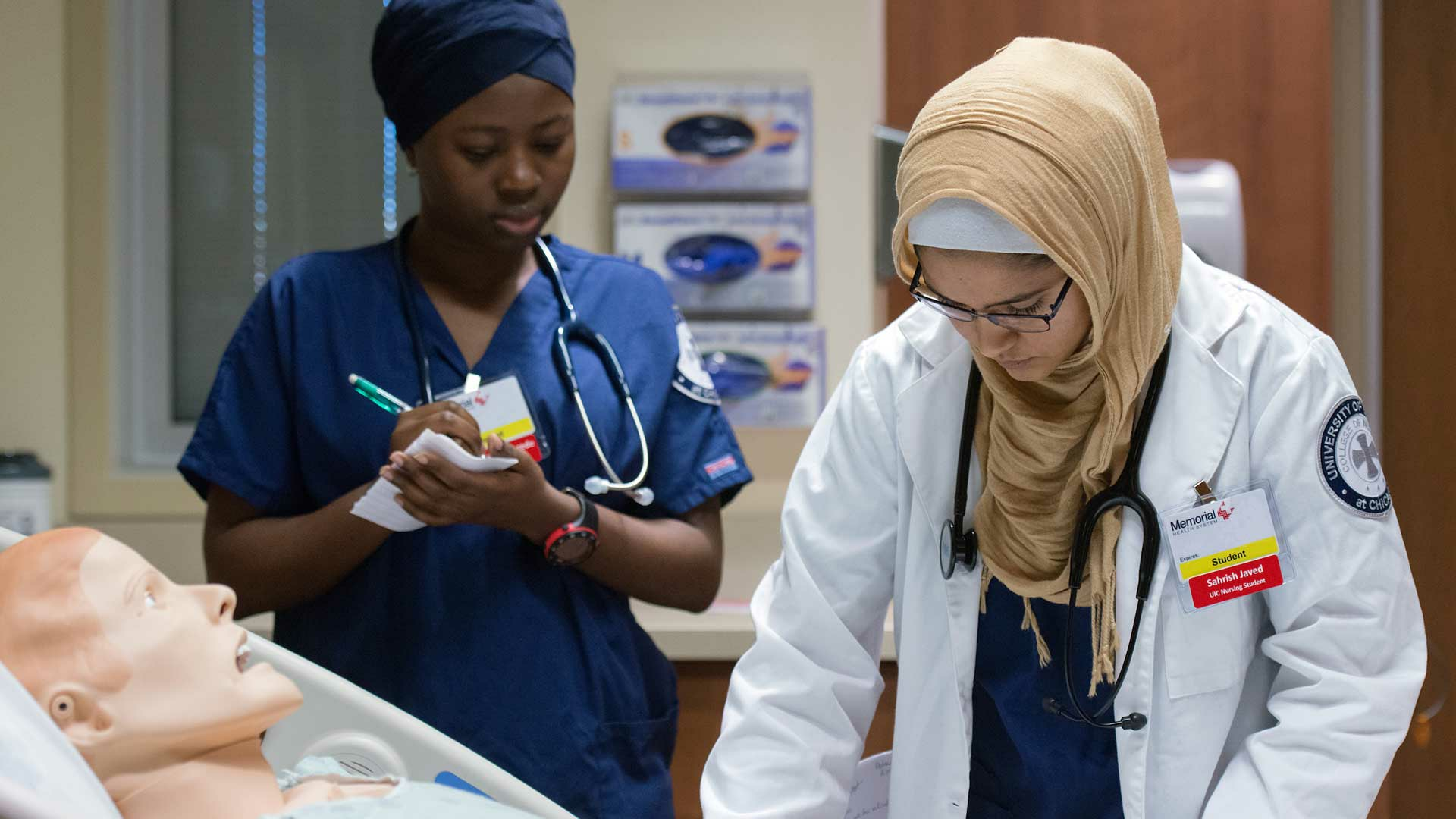Master of Science

Program Overview
Beginning in Fall 2014, the College of Nursing (CON) implemented a revised curriculum for both the Master of Science (MS) and Doctor of Nursing Practice (DNP). The CON’s reconceptualization of graduate nursing education is evidence of our responsiveness to the changing dynamic in health care and our commitment to preparing the most sophisticated and skilled nursing professionals for today and the future. Our academic programs are consistent with the American Association of Colleges of Nursing’s call to produce advanced nursing clinicians who are able to address the complex care needs of this environment in direct care and specialty practice roles.
A summary of the changes to the MS degree are as follows:
Advanced Generalist Master of Science (AGMS)
- Replaces the Master of Science curriculum for specialty practice (Nurse Practitioner, Clinical Nurse Specialist, Nurse Midwife) with an advanced generalist degree (no specialty concentration)
- 34 credit degree program and 135 clinical hours: 12 months (3 terms, full-time); 2 years (4 terms, part-time)
- Entry points as a post-BSN (traditional) or Registered Nurse with non-nursing baccalaureate (transitional)
- AGMS graduates are eligible to sit for Clinical Nurse Leader (CNL) certification with additional clinical hours (405 clinical hours), if desired.
- Students may also choose to add certificate courses or electives depending on career goals.
- 31 credit hours (10 of the 11 courses) required to earn the new AGMS will appear in the new DNP curriculum, allowing for a seamless and abbreviated transition into advanced practice specialty studies. The new AGMS curriculum is offered in a web-enhanced format. Courses will entail use of the internet and other electronic software (PowerPoint, Skype, Blackboard, etc.). Some required courses may not lend themselves to an online format and will require in person attendance. The MS transition is a route of entry to the MS in nursing for students with an RN license and a bachelor’s degree in a field other than nursing.
- MS Transition Program
- The AGMS admits students during the fall semester only at the Chicago, Peoria, Quad Cities, Rockford, Springfield or Urbana regional sites.
- Transition students are required to take an additional 1 to 4 courses (to be determined upon admission to determine which courses are necessary).
- All transition courses are delivered online in eight-week modules, delivered through the School of Continuing Studies and taught by UIC College of Nursing faculty.
- Course credits are applied exactly the same as graduate degree courses.
- Students are assessed UIC Graduate Student Tuition/Fees.
- All required transition courses are to be completed during the first Fall/Spring semesters following admission to the College of Nursing and before beginning any coursework in the AGMS degree.
The transition courses are as follows:
- NURS 210 Health Assessment
- NURS 242 Concepts & Processes for Contemporary Nursing Practice
- NURS 385 Clinical Concepts & Processes for Population-Focused Nursing
- NURS 322 Introduction to Nursing Research & Statistics for Evidence-Based Practice

